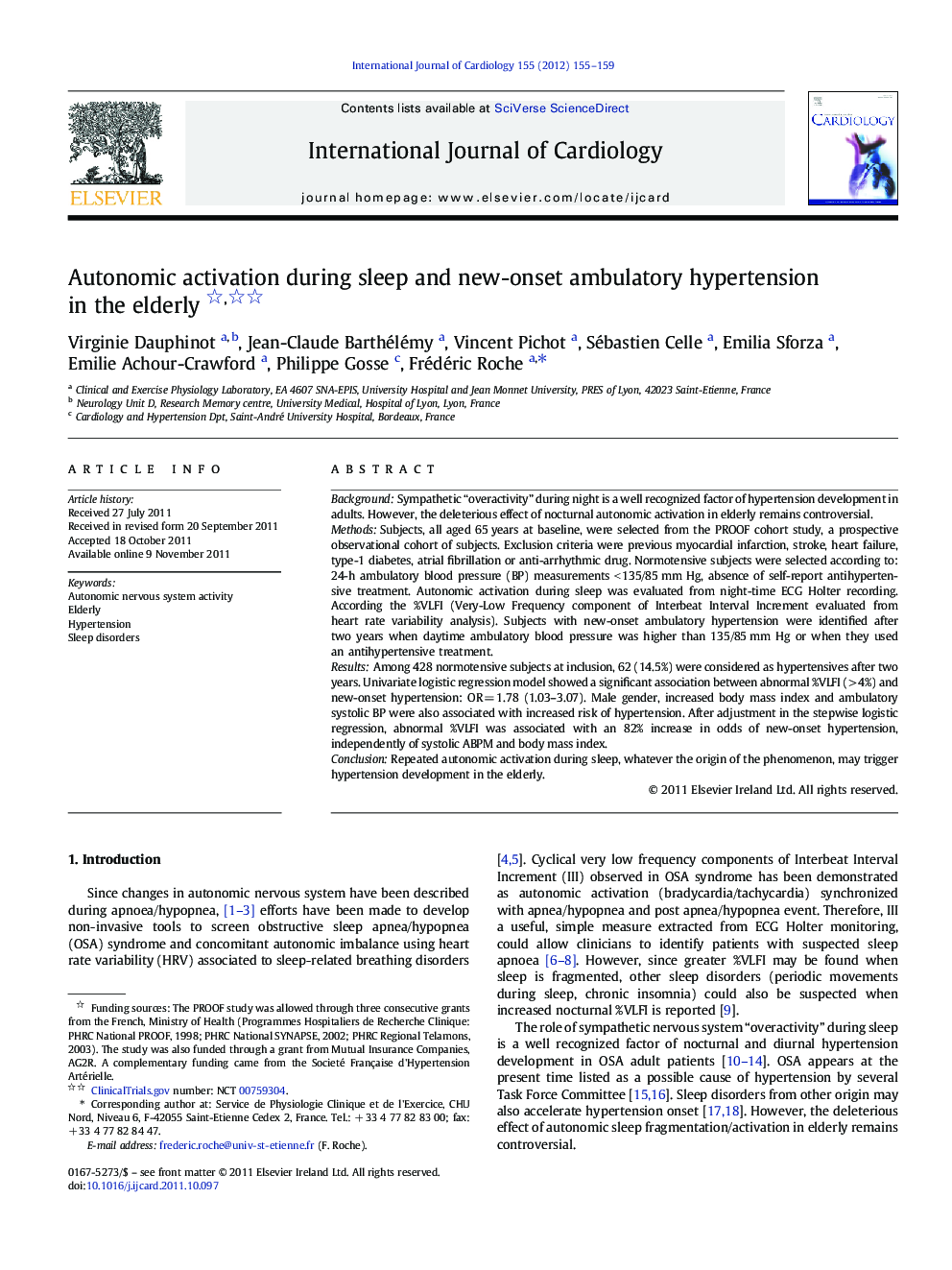| Article ID | Journal | Published Year | Pages | File Type |
|---|---|---|---|---|
| 2930154 | International Journal of Cardiology | 2012 | 5 Pages |
BackgroundSympathetic “overactivity” during night is a well recognized factor of hypertension development in adults. However, the deleterious effect of nocturnal autonomic activation in elderly remains controversial.MethodsSubjects, all aged 65 years at baseline, were selected from the PROOF cohort study, a prospective observational cohort of subjects. Exclusion criteria were previous myocardial infarction, stroke, heart failure, type-1 diabetes, atrial fibrillation or anti-arrhythmic drug. Normotensive subjects were selected according to: 24-h ambulatory blood pressure (BP) measurements < 135/85 mm Hg, absence of self-report antihypertensive treatment. Autonomic activation during sleep was evaluated from night-time ECG Holter recording. According the %VLFI (Very-Low Frequency component of Interbeat Interval Increment evaluated from heart rate variability analysis). Subjects with new-onset ambulatory hypertension were identified after two years when daytime ambulatory blood pressure was higher than 135/85 mm Hg or when they used an antihypertensive treatment.ResultsAmong 428 normotensive subjects at inclusion, 62 (14.5%) were considered as hypertensives after two years. Univariate logistic regression model showed a significant association between abnormal %VLFI (> 4%) and new-onset hypertension: OR = 1.78 (1.03–3.07). Male gender, increased body mass index and ambulatory systolic BP were also associated with increased risk of hypertension. After adjustment in the stepwise logistic regression, abnormal %VLFI was associated with an 82% increase in odds of new-onset hypertension, independently of systolic ABPM and body mass index.ConclusionRepeated autonomic activation during sleep, whatever the origin of the phenomenon, may trigger hypertension development in the elderly.
